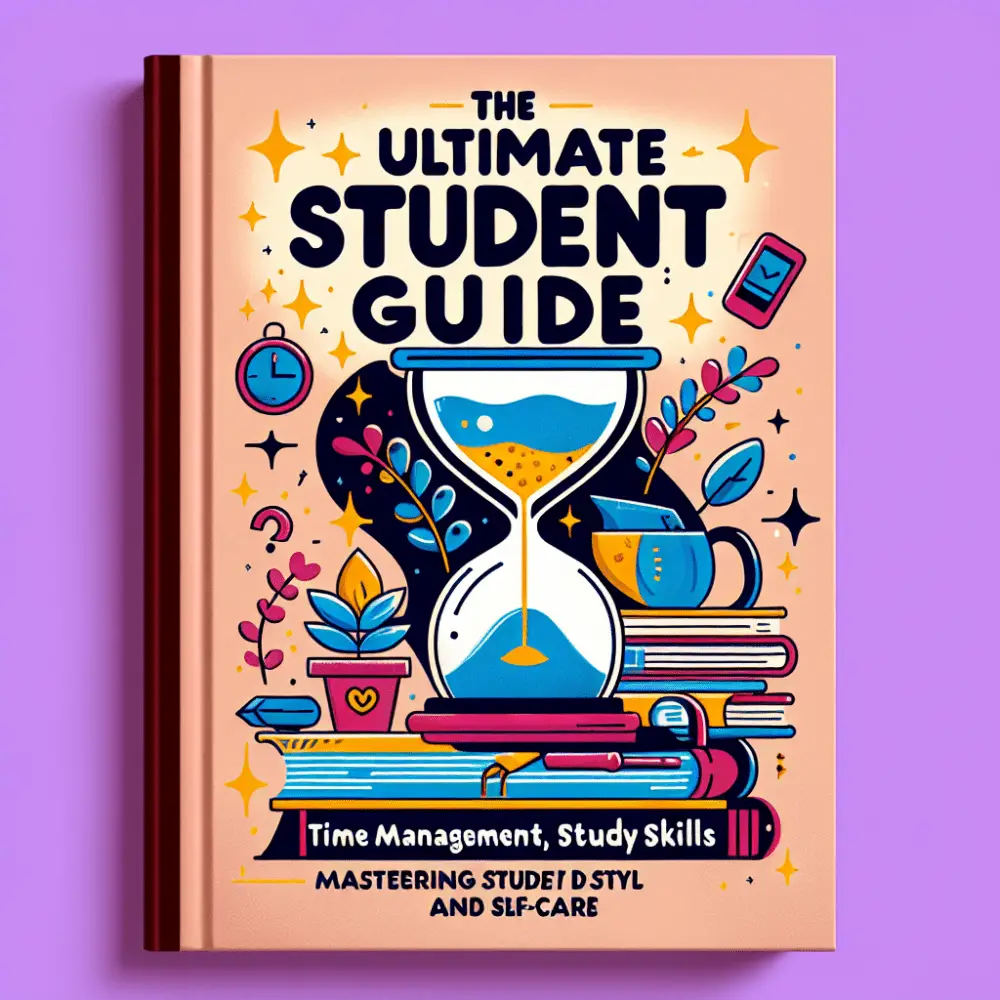
The Ultimate Student Guide: Mastering Time Management, Study Skills, and Self-Care
Being a student is an exciting and rewarding journey filled with new experiences, opportunities, and challenges. However, it can also be overwhelming at times with the demands of coursework, exams, extracurricular activities, and maintaining a healthy personal life. To thrive academically and personally, it is crucial for students to develop effective time management skills, study strategies, and practice self-care. This ultimate student guide aims to provide invaluable tips and techniques to help students navigate their academic journey successfully.
Whether you are a high school student preparing for college or already enrolled in a university program, time management is key to achieving academic success. Maximizing the use of your time allows you to stay organized, complete tasks efficiently, and maintain a healthy work-life balance. One effective strategy to manage your time effectively is by creating a daily schedule or using a planner. By allocating specific time slots for studying, attending classes, participating in extracurricular activities, and personal time, you can ensure that all aspects of your life are given proper attention.
Mastering Time Management
Create a Schedule: Designate specific blocks of time for different activities throughout your day. Ensure that you allocate enough time for studying as well as breaks.
Avoid Procrastination: Procrastination can be a major roadblock in managing your time effectively. Break down tasks into smaller manageable parts so they feel less overwhelming.
Set Priorities: Identify the most important tasks that need to be completed first and focus on those before moving on to less urgent ones.
Avoid Overbooking: Be mindful of how much you commit yourself to outside of academics. It’s important to have a healthy balance between academic and personal commitments.
Study Skills
Effective Note-Taking: Taking concise and organized notes during class can greatly enhance your understanding and retention of the material. Use abbreviations and keywords to capture key points quickly.
Create a Study Plan: Develop a study plan that incorporates regular review sessions, practice exams, and breaks. This helps reinforce your learning and prevents last-minute cramming.
Utilize Active Learning Techniques: Instead of passively reading textbooks or lecture notes, engage in activities such as group discussions, teaching concepts to others, or creating visual aids to reinforce your understanding.
Find the Right Study Environment: Experiment with different study environments to find the one that suits you best. Some students prefer complete silence while others thrive in a slightly noisy environment.
Self-Care
Prioritize Sleep: Getting adequate sleep is crucial for your overall well-being and cognitive function. Aim for 7-9 hours of sleep each night to ensure you wake up refreshed and ready to tackle the day’s challenges.
Maintain a Balanced Diet: Fueling your body with nutritious food helps improve focus, concentration, and energy levels. Incorporate fruits, vegetables, whole grains, lean proteins, and plenty of water into your diet.
Exercise Regularly: Engaging in physical activity not only improves physical health but also boosts mental clarity and reduces stress. Find an exercise routine that you enjoy and make it a regular part of your schedule.
Prioritize Mental Health: It’s important to recognize when you need a break or if you’re feeling overwhelmed. Take time for self-care activities such as meditation, journaling, or engaging in hobbies that help you relax and recharge.
Frequently Asked Questions (FAQ)
Q: How can I avoid distractions while studying?
A: Create a distraction-free environment by turning off notifications on your phone, using website blockers on your computer, and finding a quiet study space.
Q: How can I improve my concentration during study sessions?
A: Break your study sessions into shorter periods and take regular breaks. Use techniques like the Pomodoro Technique (25 minutes of focused studying followed by a 5-minute break) to maintain focus.
Q: How can I manage stress during exams?
A: Practice relaxation techniques such as deep breathing exercises or mindfulness meditation. Prioritize self-care activities, get enough sleep, eat well, and exercise regularly to help manage stress levels.
Q: How can I stay motivated throughout the semester?
A: Set clear goals for yourself and regularly revisit them to stay motivated. Break down your goals into smaller tasks and reward yourself upon completion. Find a study buddy or join a study group to create accountability.
Remember, mastering time management, study skills, and practicing self-care are ongoing processes that require consistency and adaptation. Experiment with different strategies to find what works best for you. With the right mindset and dedication, you can excel academically while nurturing your overall well-being as a student.












